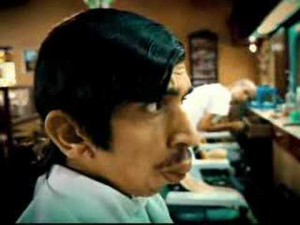Many of the most memorable ad campaigns around tend to be funny. Advertisers use this strategy to attract customers to their product. Audiences likes to be entertained, but not pinched. People will pay more attention to a humorous commercial than a factual or serious one, opening themselves up to be influenced. The key to funny advertising is assuring the humor is appropriate to both product & customer. The balance between funny and obnoxious can often be delicate and a marketer must be certain that the positive effects outweighs the negative, before an advertisement can be introduced.
 The best products to sell using humor tend to be those that consumer have to think the least about. Products that are relatively inexpensive and often consumable, can be represented without providing a lot of facts, and that’s where there is room for humor. Candy, food, alcohol, tobacco and entertainment related products have proven to benefit the most from humor in there campaigns. One of the most important thing to keep in mind is relevance to the product. Another point to consider when using humor in advertising is that different things are funny to different people. A commercial that may leave one person gripping their sides from laughter may leave a bad taste in another’s mouth. The target market must always be considered. What’s funny in a client presentation may not be funny on an airplane, at a country club or in a hospital.
The best products to sell using humor tend to be those that consumer have to think the least about. Products that are relatively inexpensive and often consumable, can be represented without providing a lot of facts, and that’s where there is room for humor. Candy, food, alcohol, tobacco and entertainment related products have proven to benefit the most from humor in there campaigns. One of the most important thing to keep in mind is relevance to the product. Another point to consider when using humor in advertising is that different things are funny to different people. A commercial that may leave one person gripping their sides from laughter may leave a bad taste in another’s mouth. The target market must always be considered. What’s funny in a client presentation may not be funny on an airplane, at a country club or in a hospital.
 Humor in advertising tends to improve brand recognition, but does not improve product recall, message credibility, or buying intensions. In other words, consumers may be familiar with and having good feelings towards the product, but their purchasing decisions will probably not be affected. One of the major keys to a successful humorous campaign is variety, once a commercial starts to wear out there’s no saving without some variation on the concept. Humorous campaigns are often expensive because they have to be constantly changed. Advertisers must remember that while making the customer laugh, they have to keep things interesting, because old jokes die along with their products.
Humor in advertising tends to improve brand recognition, but does not improve product recall, message credibility, or buying intensions. In other words, consumers may be familiar with and having good feelings towards the product, but their purchasing decisions will probably not be affected. One of the major keys to a successful humorous campaign is variety, once a commercial starts to wear out there’s no saving without some variation on the concept. Humorous campaigns are often expensive because they have to be constantly changed. Advertisers must remember that while making the customer laugh, they have to keep things interesting, because old jokes die along with their products.






